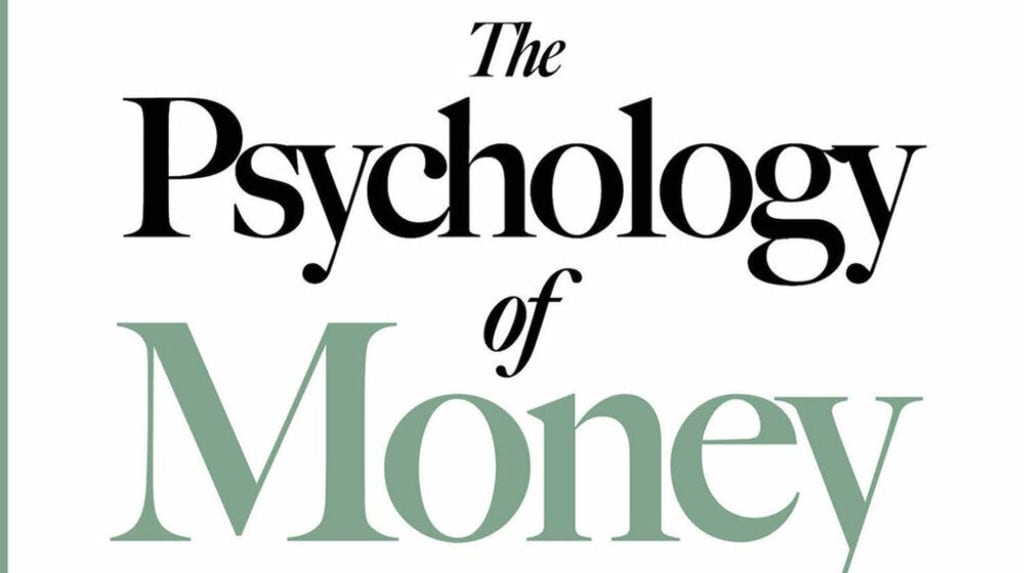Money Mindset: A Fresh Perspective on the Relationship between Money and the Human Mind
Book Review: The Psychology of Money

"The Psychology of Money" by Morgan Housel is a thought-provoking and insightful book that delves into the complex relationship between money and the human mind. The author expertly blends personal anecdotes, historical examples, and psychological research to explore the various ways in which money can shape our behavior, thoughts, and emotions.
One of the key themes that runs throughout the book is the idea that money is not just a physical currency, but a powerful force that can shape our behavior, thoughts, and emotions. Housel writes,
"Money is not just about wealth. It's about what you do with it, what it does to you, and what you sacrifice for it."
This statement perfectly encapsulates the book's central thesis - that money is not just a means of exchange but a powerful force that can shape our lives in profound ways.
Another notable aspect of the book is Housel's emphasis on the importance of perspective. He writes, "The most important thing to know about money is that it's not as important as we think it is." This sentiment is echoed throughout the book, as Housel argues that our perceptions of money often cloud our judgment and lead us to make poor financial decisions.
Housel also highlights the fact that wealth does not necessarily bring happiness. Instead, it can often bring a host of new problems, such as anxiety about losing it or the pressure to constantly acquire more. One of the most memorable quotes from the book is "The more money you have, the more problems you have."
In addition to providing a fresh perspective on money, "The Psychology of Money" is also packed with practical advice. Housel provides readers with a variety of tips and strategies for managing their finances and making smart investment decisions. He suggests understanding the difference between spending and investing, having a long-term perspective, being aware of the psychological biases that can impact your financial decisions, having a plan for your money, being prepared for the unexpected and being mindful of your savings rate.
Having an ‘edge’ and surviving are two different things: the first requires the second. You need to avoid ruin. At all costs.
-Nassim Nicholas Taleb
- Understand the difference between spending and investing: Housel stresses the importance of distinguishing between spending money on things that will depreciate in value (like a new car or a designer handbag) and investing money in things that will appreciate in value (like a home or a business).
- Have a long-term perspective: Housel argues that it's essential to take a long-term perspective when it comes to managing money. He writes, "The most important thing to know about money is that it's not as important as we think it is." By focusing on the long term, you can avoid making impulsive, short-sighted financial decisions.
- Be aware of the psychological biases that can impact your financial decisions: Housel highlights a variety of psychological biases that can cloud our judgment when it comes to money. For example, the "sunk cost fallacy" can lead us to hold on to losing investments, while "confirmation bias" can cause us to seek out information that supports our existing beliefs.
- Have a plan for your money: Housel stresses the importance of having a plan for your money, whether that means creating a budget, setting financial goals, or developing a long-term investment strategy. He writes, "A plan is just a way of making decisions in advance, so you don't have to make them when you're emotional."
- Be prepared for the unexpected: Housel also emphasizes the importance of being prepared for unexpected events, such as a job loss or a medical emergency. He suggests having an emergency fund and diversifying your investments to minimize risk.
- Be mindful of your savings rate: According to Housel, one of the most important aspects of personal finance is understanding the relationship between your savings rate and your ability to achieve financial independence. He suggests setting a high savings rate as a priority, to ensure you can meet your long-term goals.
In conclusion, "The Psychology of Money" by Morgan Housel is a book that should be read by anyone looking to gain a deeper understanding of the complex relationship between money and the human mind, as well as practical advice on how to manage their finances. It will challenge your beliefs about money and open your eyes to new perspectives on how to approach personal finances. It's a book that will make you think differently about money and the role it plays in your life.
About the Creator
Enjoyed the story? Support the Creator.
Subscribe for free to receive all their stories in your feed. You could also pledge your support or give them a one-off tip, letting them know you appreciate their work.





Comments
There are no comments for this story
Be the first to respond and start the conversation.